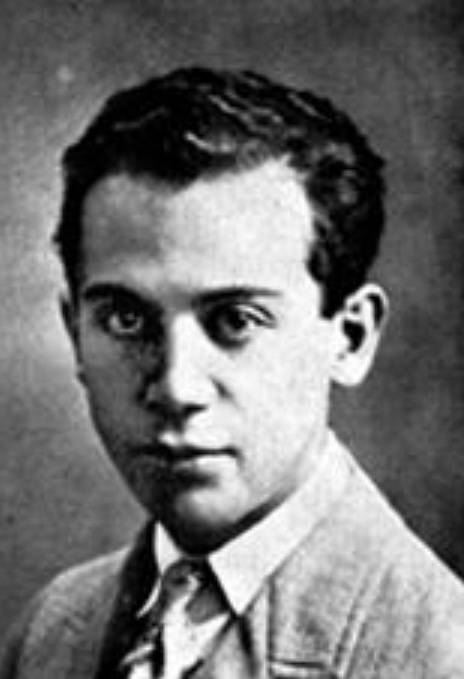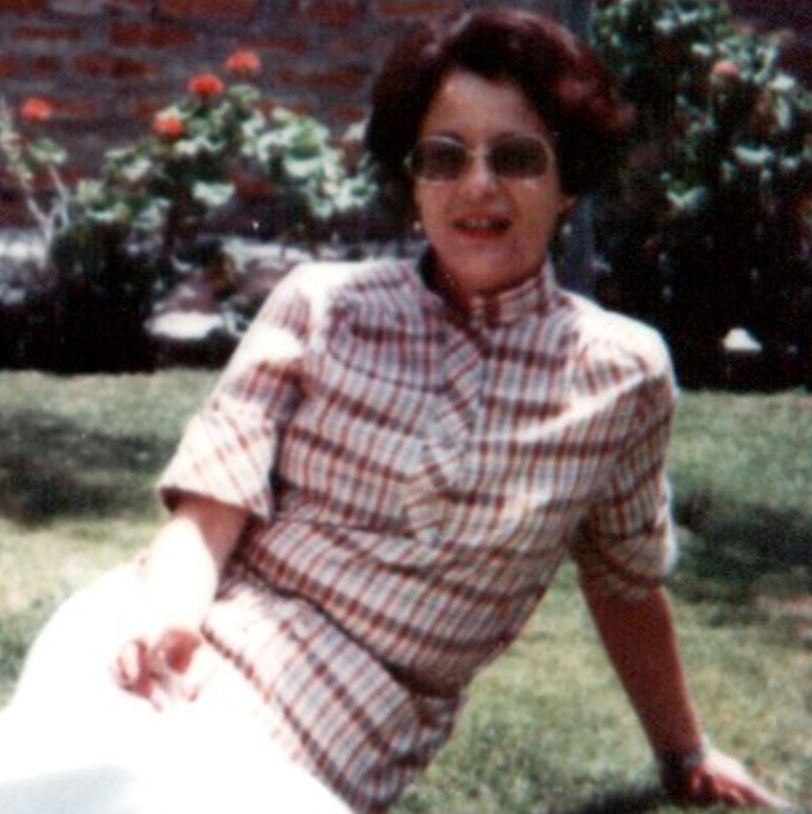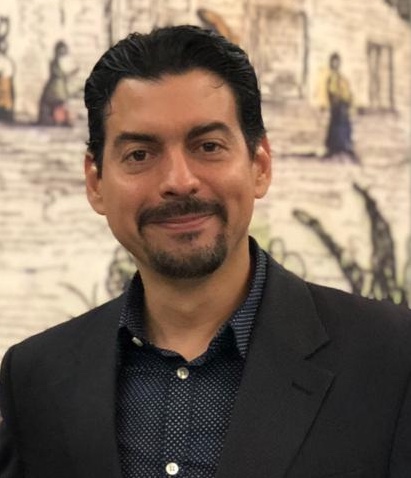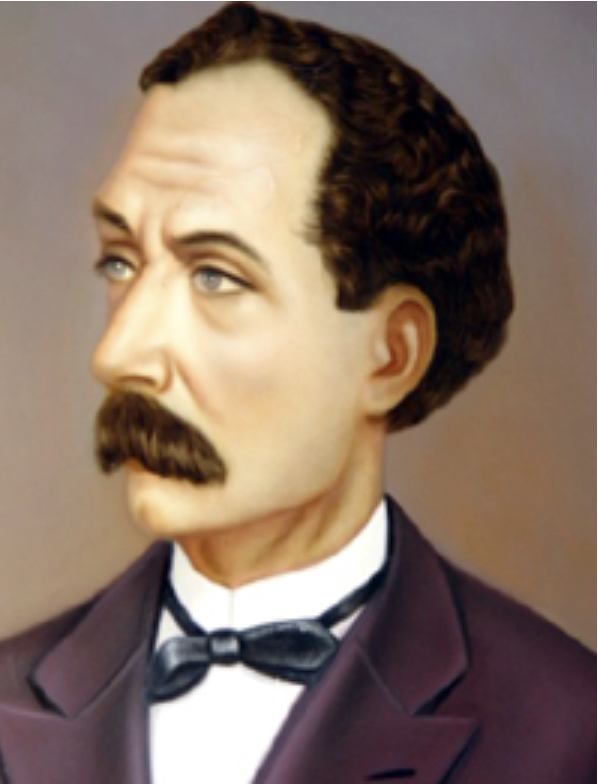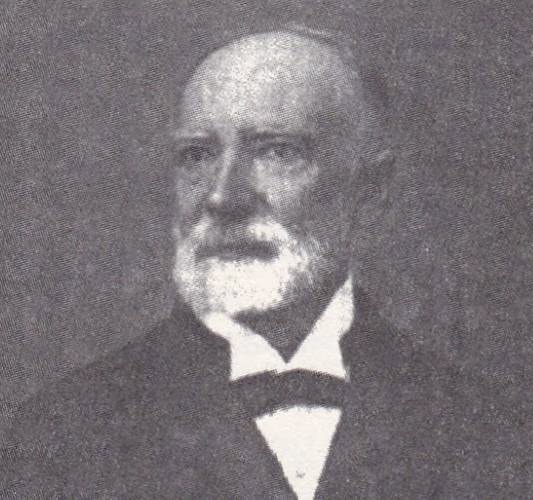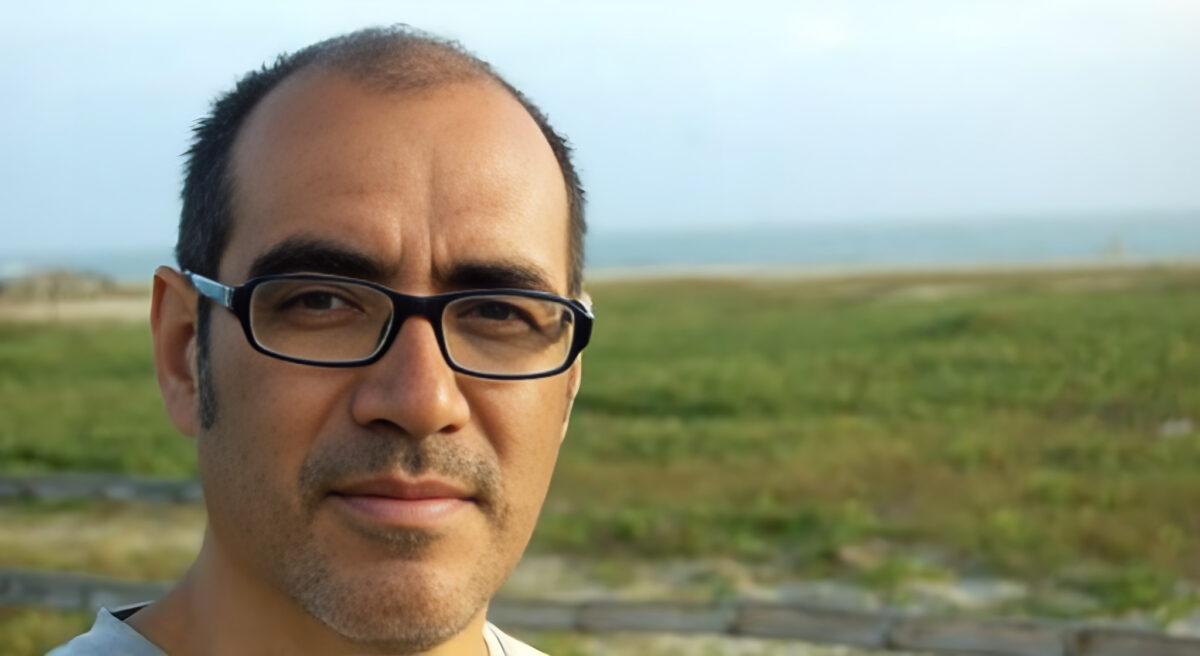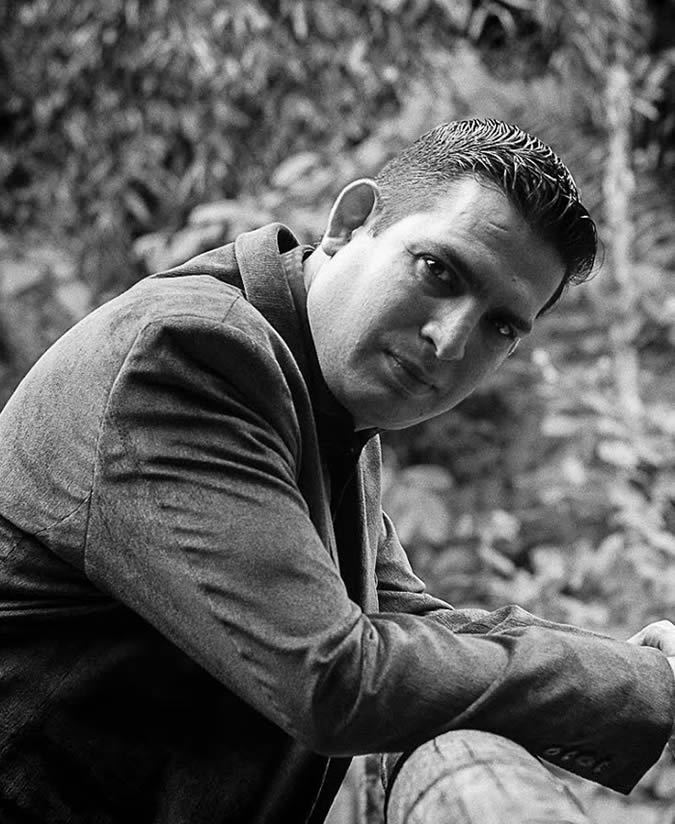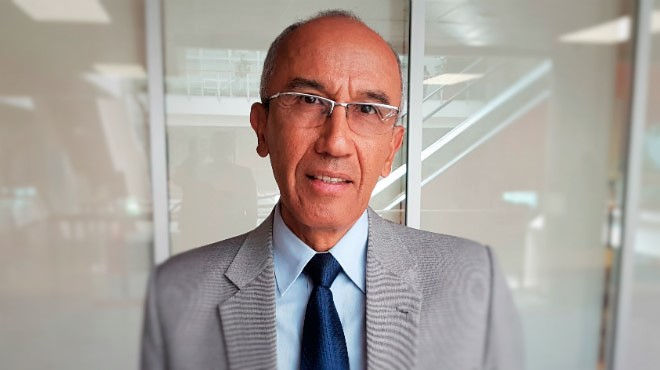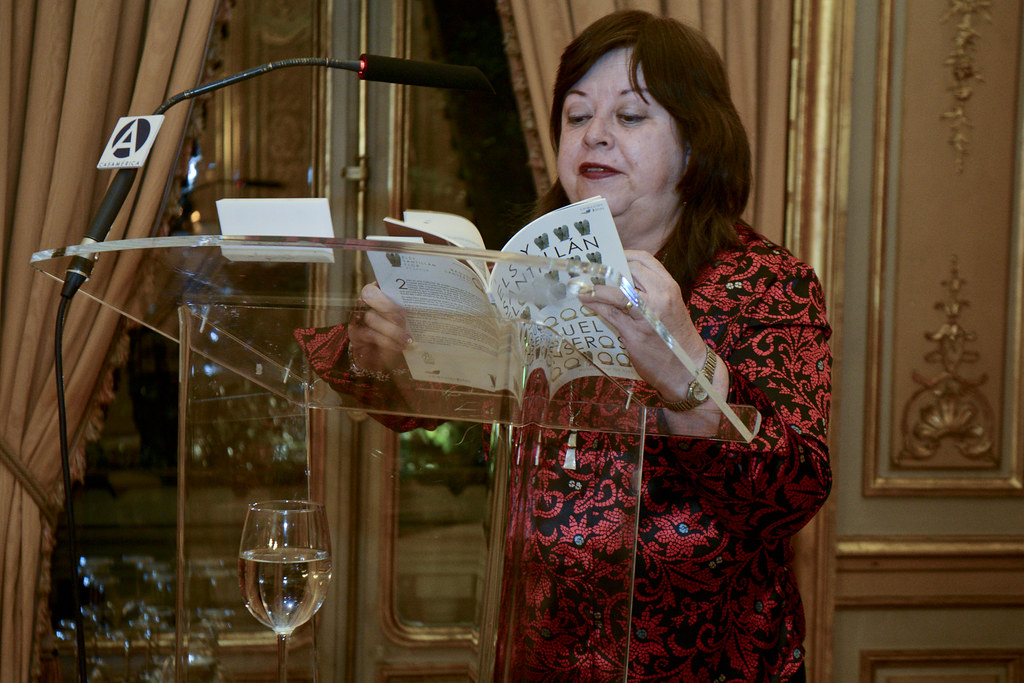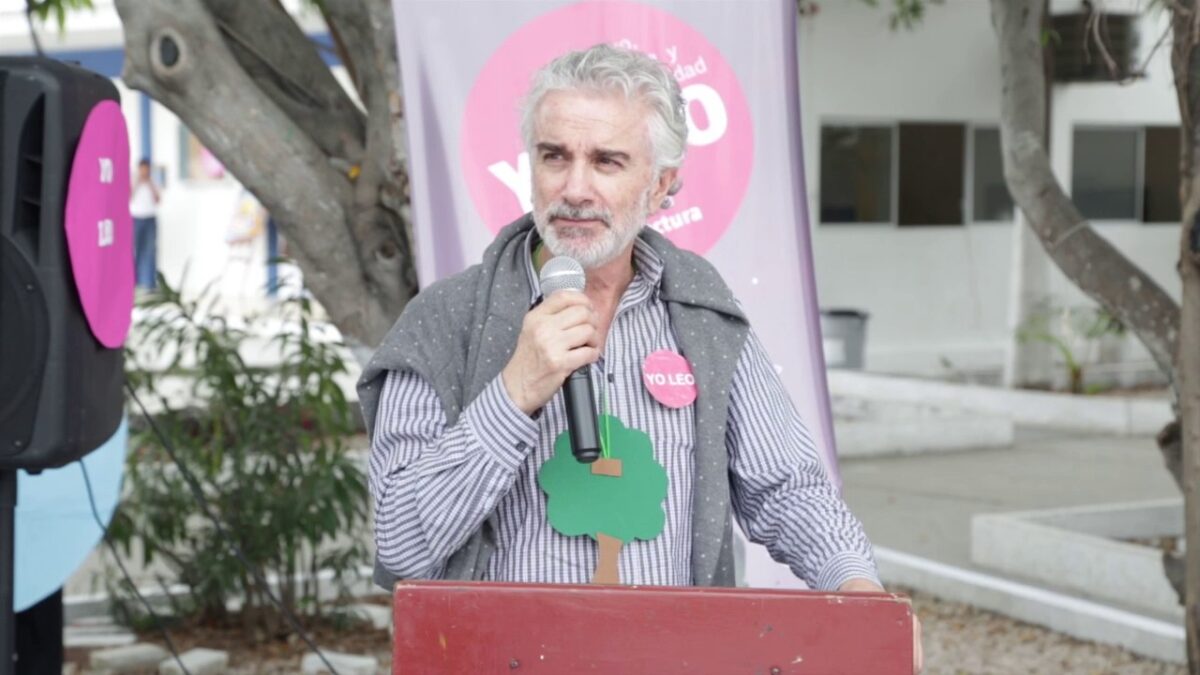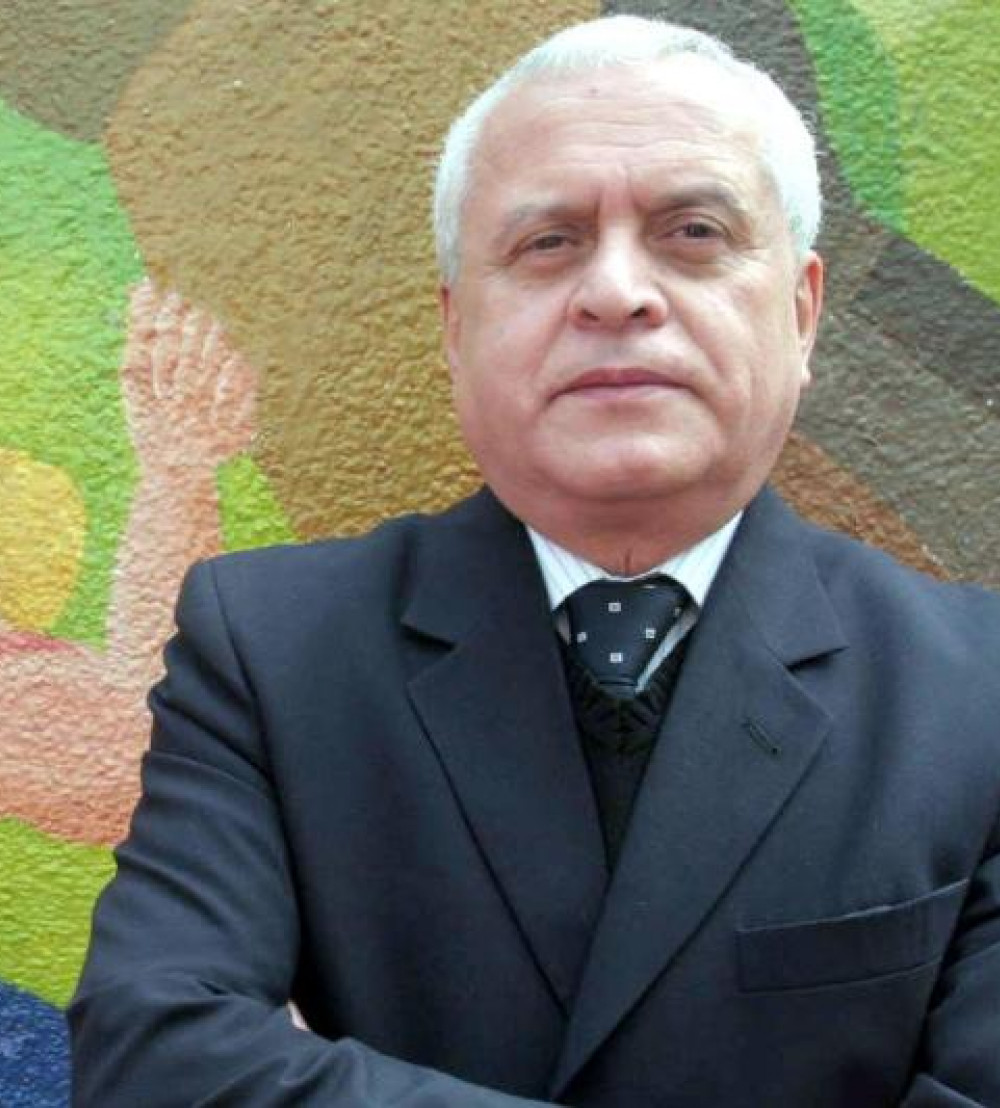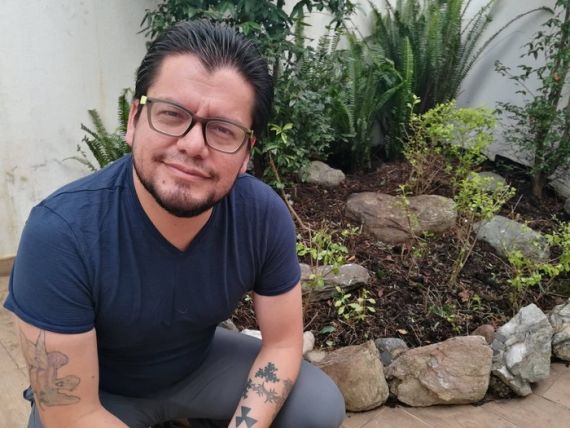Edgar Ramirez Estrada (Guayaquil, May 5, 1923 – April 9, 2001) was an Ecuadorian poet and psychiatrist. He published 6 poetry collections during his lifetime and his work has been included in several anthologies. His work was admired and championed by many renowned Ecuadorian literary figures such as Alejandro Carrión Aguirre, Miguel Donoso Pareja, and Carlos Eduardo Jaramillo. Beginning with his poetry collection “Derrumbe” (1969), his style of poetry has been referred to as anti-poetry or no-poetry. All of his books were published by the House of Ecuadorian Culture. He was the son of one of Ecuador’s most important poets, Aurora Estrada y Ayala. He was also the brother of novelist Alcino Ramírez Estrada and poet Isabel Ramírez Estrada.
Continue reading “Edgar Ramirez Estrada”Category: Poets
Augusto Arias
Augusto Arias Robalino (Quito, March 15, 1903 – Quito, August 24, 1974) was an Ecuadorian poet, essayist, biographer, anthologist, scholar, university professor, and literary critic. His poetry collection Del Sentir (1920) reflects the modernismo movement of early twentieth-century Ecuador. Arias was a passionate scholar of Ecuadorian letters and authored influential studies, including Panorama de la Literatura Ecuatoriana (1936), España en los Andes (1950), and El Viajero de Papel (1968). He also produced biographical studies on prominent figures such as Eugenio Espejo, Luis A. Martínez, and Pedro Fermín Cevallos. Additionally, he co-edited Antología de Poetas Ecuatorianos (1944) with Antonio Montalvo, marking one of the earliest collaborative efforts to document and celebrate Ecuadorian poetry.
Continue reading “Augusto Arias”Humberto Vacas Gómez
Humberto Vacas Gómez (Quito, 1913-Quito, 2000) was an Ecuadorian writer, literary critic, poet, journalist, and diplomat. As a journalist, his career is tied to the Quito daily newspaper El Comercio. He served as the Minister of Education between 1963 and 1964 and President of the National Union of Journalists. He was a lifelong supporter of democracy and was persecuted by past totalitarian governments for this reason. In 1937, he published his first book of poems, “Canto a lo oscuro,” which was praised by Isaac J. Barrera in his book “Historia de la Literatura Ecuatoriana.” Vacas’ nonfiction books include “La educación artística de las masas,” “Panorama de la pintura ecuatoriana,”and “Los Estados Unidos que yo vi.” A school in Quito bears his name.
Continue reading “Humberto Vacas Gómez”Martha Lizarzaburu
Martha Lizarzaburu, born Martha Emilia Lizarzaburu Dávila (Quito, June 14, 1940 – January 27, 2019) was an Ecuadorian poet and worked as literature teacher for 29 years at the “24 de Mayo” School in Quito. She published 3 poetry collections: “Aljibe” (1964), “Memorial de la sombra y la ternura” (1973), and “Ataduras para el viento” (1977). Her work was also featured in the poetry anthology “Antología de ocho poetas tanáticas del Ecuador“ (2005) edited by Rodrigo Pesántez Rodas.
Continue reading “Martha Lizarzaburu”Eduardo León
Eduardo León Rodríguez (Guayaquil, 1977) is an Ecuadorian poet and author of children’s literature. His poetry collections include: “Censurado” (2018) and “Manzana para mi boca” (2019), both of which were published by El Ángel Editor. His poems have also been included in several anthologies. His first children’s book was “Luz Emilia, un cuento de la infancia.” His latest children’s book is “Ofelia y las cabras mágicas.”
Continue reading “Eduardo León”Miguel Riofrío
Miguel Riofrío Sánchez (Loja, Ecuador, September 7, 1822 – Lima, Peru, October 11, 1879) was an Ecuadorian poet, novelist, journalist, orator, educator, lawyer, and politician. He is best known today as the author of “La Emancipada,” Ecuador’s first novel, which was published in installments in the newspaper La Unión in 1863. Many experts however argue that because the book is usually less than 100 pages long in print, it is really a novella rather than a novel, and that Ecuador’s first novel is in fact “Cumanda” (1879) by Juan León Mera. Nonetheless, Miguel Riofro’s “La Emancipada” has been accepted as Ecuador’s first novel, thanks to the arguments of the well-known and respected Ecuadorian writer Alejandro Carrión (1915-1992).
Continue reading “Miguel Riofrío”Belisario Peña
Belisario Peña Gómez (Zipaquirá, Colombia, August 5, 1834 – September 7, 1906) was a Colombian poet and educator in Ecuador. At the request of Miguel Riofrio, Ecuador’s Charge d’Affaires, he moved to Ecuador to help found a school with Riofro, Benjamn Pereira Gamba and Francisco Ortiz Barrera. The school, “Colegio de la Unión,” opened on July 20, 1857 at the Santo Domingo de Loja temple. At the beginning of 1860, the Provisional Government of Quito called on Peña and Barrera to found the Colegio de la Unión in Ecuador’s capital. The new Colegio de la Unión opened its doors in Quito on March 2, 1861. Then President García Moreno ordered the merger of the Colegio de la Unión of Quito with the “Nacional” recently created for the Jesuits, who renamed the combined school “San Gabriel.” In 1875 he was a founding member of the Ecuadorian Academy of Language. In 1889 he and Carlos Casares resigned from the Ecuadorian Academy of Language due to the political dispute between the conservatives led by José Modesto Espinosa, against the progressives. In 1912 his friend the Archbishop of Quito, Federico González Suárez, compiled his poems and published them in a volume entitled “Composiciones poéticas del Sr. Don Belisario Peña” [Poetic compositions of Mr. Don Belisario Peña] in 334 pages. preceded by a prologue by González in 62 pages. In 1932 Manuel María Pólit published 11 more poems, minor but not unworthy; among them a translation of Manzoni entitled “El día de la Primera Comunión.” An additional 16 poems are compiled in the Library of the Jesuits of Cotocollao, one of them of great interest, in honor of General Tomás Cipriano de Mosquera. Belisario Peña’s biography was written and published in Colombia by scholar Roberto M. Tisnés J. CMF.
Continue reading “Belisario Peña “Alfredo Noriega
Afredo Noriega Fernández (Quito, 1962) is an Ecuadorian writer, novelist, short story writer, and playwright. In the early 1980’s he was a member of the writing workshop of Miguel Donoso Pareja and founded the group La Pequeñalulupa. In 1985, he moved to Paris, France where he studied linguistics at the Sorbonne Nouvelle. He lived in Paris and Brussels for many years and now lives in Cardiff, United Kingdom. He has worked as a Spanish professor at universities. He is a highly-acclaimed author of noir novels. Some of his best-known work includes the 2002 novel “De que nada se sabe,” (translated into French as C’est dur de mourir au printemps), its 2010 sequel “Tan solo morir” (translated as Mourir, la belle affaire), and the trilogy’s final book, the 2019 novel “Eso si nunca.” The first book of this trilogy, “De que nada se sabe,” was adapted into the 2008 film “Cuando me toque a mí,” directed by Víctor Arregui, who collaborated with Noriega on the screenplay. He has published novels, short story collections, poetry collections, and plays. His stories have been included in several national and international anthologies.
Continue reading “Alfredo Noriega”Carlos Coello García
Carlos Coello García (Manta, 1983) is an Ecuadorian lawyer, writer, and poet. He lives in the city of Santa Ana in the Manabi province. He has published three poetry collections: “La inspiración de un fantasma” (2002) “La creación perfecta” (2009) and “El origen del mal y otros poemas” (2017). His novel, “Leyendas de un fauno” (2018), is the first book in a fantasy trilogy. His latest book, “Oculto” (2022) is a horror novel. Some of his poems and stories have been published in newspapers in his province and digital blogs.
Continue reading “Carlos Coello García”Pedro Isaac Barreiro
Pedro Isaac Barreiro Chancay (Santa Ana, Manabi, July 3, 1949) is an Ecuadorian medical doctor, public health specialist, writer, novelist, short story writer, and poet. Passionate about writing and the proper use of the Spanish language, he ventured into the world of literature from a very young age (essays, short stories, poetry and novels) with notable success, and has several publications to his credit. His notable poetry collections include, “De Regreso” (1990), and “Los Versos Prohibidos” (2008). His prose includes a genre that he calls “miniatures,” compiled in books that have been very well received by critics, such as: “Tarqui 707” (1995), “Mamita Galud” (2002), or “El Tendón de Aquiles” (2009). In 2013, he published his first novel ”El Escritor,” an exciting journey through the human psyche. He is a member of the Ecuadorian House of Culture and the Ecuadorian Corporation of Medical Writers, an organization that is part of the World Union of Medical Writers.
Continue reading “Pedro Isaac Barreiro”Elsy Santillán Flor
Elsy Santillán Flor (Quito, December 23, 1957) is an Ecuadorian poet, fiction writer, playwright, and author of children’s literature. She’s also a lawyer by profession and has worked in Ecuador’s courts. From 1999-2002 she was secretary of Ecuadorian Society of Writers (SEDE). She was the recipient of the Jorge Luis Borges National Prize and the Pablo Palacio Prize. One of her plays received honorable mention at the Joaquín Gallegos Lara Prize in 2011. The majority of her short fiction was collected in “Los miedos juntos” (2009). In 2021, she published her latest work, a horror novel titled “Fantasmagórica aventura del grupo 21” [The Phantasmagorical Adventure of Group 21]. Some of her works have been translated into Hungarian and French.
Continue reading “Elsy Santillán Flor “Gabriela Cárdenas
Gabriela Cárdenas Monge (Quito) is an Ecuadorian writer, poet, graphic designer, and plastic artist. In 2018 she published a book titled “De poemas y relatos,” which combines poetry and prose with pictures of her artwork. In 2019, she won Fourth place in the The Best Christmas Stories contest hosted by the Hispanic Heritage Literature Foundation – Milibrohispano.org, which created a Spanish/English bilingual edition of the book which was published by Snow Fountain Press in Miami. In 2020, her story “La abuela y su guagua de pan” won a special mention in the international category of the contest Cuentale tu cuento a la Nota Latina, and was published in the anthology titled “33 Relatos Hispanos.” That same year, her poem “Distancia” was included in the poetry anthology “Siglemas 575.” Her poem “Terminamos, para siempre” was a finalist of the III Certamen de poesia – Hagamos art con palabras organized by the Art Emporium Gallery of Miami. She is currently working on the manuscript of her first novel.
Continue reading “Gabriela Cárdenas”Luis Zúñiga
Luis Zúñiga (Quito, 1955) is an Ecuadorian novelist, poet and writer. He studied anthropology in Ecuador and Italy and has vast experience working in the Andes region. He has also served in Cuba as a diplomatic and cultural emissary. He has written 3 poetry collections and 5 novels. In 1991, his historical novel “Manuela” won the Joaquín Gallegos Lara Prize. It has been published in Ecuador and in Colombia, Cuba, Peru and Venezuela. His 2010 novel, “Un As de alto vuelo” (2010) pays tribute to the Italian pilot Elia Liut who made the first flight over the Andes of Ecuador in 1920. Luis Zúñiga published his latest novel, ”Karaoke,” in 2015, about the virtual world, communication and the new existential crisis of contemporary civilization.
Continue reading “Luis Zúñiga”Francisco Proaño Arandi
Francisco Proaño Arandi (Cuenca, January 20, 1944) is an Ecuadorian novelist, short story writer, essayist, and diplomat. In the 1960’s he was part of the literary group called Tzántzicos. In 1961, when he was 17 years old, he published a poetry book titled “Poesías.” However, since then he has dedicated himself solely to prose. In 1964 he started the magazine Z with Alejandro Moreano, and the magazine La bufanda del sol (1965-1966) with Ulises Estrella and Alejandro Moreano. In 1972, he published his first book of poems, “Historias de disecadores.” In 1984, he published his first novel, “Antiguas caras en el espejo,” which was critically acclaimed and was awarded the José Mejía Lequerica Prize by the Municipality of Quito for best prose work. In 1993, he published a second novel, “Del otro lado de las cosas.” In 2003 his short story book, “Historias del país fingido,” won the Joaquín Gallegos Lara Prize. In 2003, his third novel, “La razón y el presagio” was published. His fourth novel, “Tratado del amor clandestino,” was a finalist of the Rómulo Gallegos International Prize (2009, Caracas, Venezuela) and the José María Arguedas Prize from the Casa de las Américas (2010, Havana, Cuba). In 2009, his fifth novel “El sabor de la condena” also won the Joaquín Gallegos Lara Prize. From 2002 to 2003 he was the director of the House of Ecuadorian Culture’s magazine Letras del Ecuador. Although he was born in Cuenca, he has lived in Quito most of his life since that’s where his family is originally from.
Continue reading “Francisco Proaño Arandi”Juan José Rodinás
Juan José Rodinás, born Juan José Rodríguez (Ambato, 1979) is an Ecuadorian poet, writer and translator. In 2021, he won the Aurelio Espinosa Pólit Prize for his book “Fantasías animadas de ayer y alrededores.” Other prestigious accolades he has received include the Jorge Carrera Andrade Prize (2018, Ecuador) and the Casa de las Américas Prize (2019, Cuba). In 2018, a collection of his poems was translated into English by Ilana Dann Luna and published in a bilingual edition as “Koan Underwater” by Cardboard House Press.
Continue reading “Juan José Rodinás”